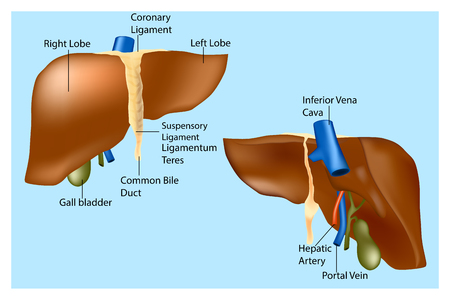Introduction: Supporting Recovery the Local Way
Muscle recovery is a vital part of maintaining a healthy and active lifestyle, whether you are an athlete, enjoy regular exercise, or are simply looking to improve your overall well-being. In the UK, there is a growing awareness of how the food we choose not only impacts our bodies but also the environment around us. By focusing on locally sourced and sustainable protein options, we can support muscle repair while also contributing positively to our communities and reducing our carbon footprint. This approach aligns with British values of caring for our countryside, supporting local farmers, and making mindful choices that benefit both personal health and the planet. In this article, we will explore how embracing local, sustainable proteins can play a crucial role in muscle recovery and offer practical ways to incorporate these choices into everyday life.
2. The Science of Muscle Recovery
Understanding how our bodies recover after exercise or physical strain is key to maintaining long-term wellbeing. When we engage in physical activities—whether it’s a brisk walk through the Cotswolds, a round of cricket on the village green, or simply tending to an allotment—our muscles experience microscopic tears. This is a natural part of building strength, but for effective recovery and to prevent injury, these tiny tears must be repaired. Here’s where protein steps in as an essential nutrient.
Protein provides the amino acids that serve as the building blocks for muscle tissue repair and growth. After exercise, the body enters a state where it is particularly receptive to absorbing protein, using it to restore damaged fibres and reinforce muscles against future strain. Not only does this process support athletic performance, but it also helps with everyday activities, especially as we age or take on caring roles that require physical effort.
The Importance of Protein for Daily Wellbeing
While muscle recovery is often associated with athletes or fitness enthusiasts, everyone can benefit from adequate protein intake. In daily life across the UK—from bustling city routines in London to peaceful walks along the Scottish Highlands—sufficient protein supports:
- Maintaining muscle mass
- Boosting energy levels
- Supporting immune function
- Aiding mobility and independence in later years
Protein Needs After Physical Activity
| Activity Level | Recommended Protein Intake (per kg body weight) |
|---|---|
| Sedentary/Minimal Exercise | 0.8g |
| Moderate Activity (e.g., walking, gardening) | 1.0-1.2g |
| Intensive Training/Heavy Physical Work | 1.2-1.7g |
The British Perspective: Why Sustainable Local Protein Matters
Choosing locally sourced, sustainable protein not only supports muscle recovery but also aligns with values cherished throughout the UK—community wellbeing, care for the countryside, and environmental responsibility. By making mindful choices about our nutrition, we foster both personal health and collective resilience.

3. Sustainable Protein Sources in the UK
When considering muscle recovery, choosing sustainable protein sources is not only beneficial for your health but also for the environment. The UK offers a diverse range of local options that support both well-being and eco-friendly practices. Among the most accessible are free-range eggs, which are rich in high-quality protein and essential amino acids crucial for muscle repair. Opting for British free-range eggs ensures animal welfare standards are met while reducing food miles associated with imports.
British-grown legumes and native pulses, such as broad beans, peas, and lentils, also stand out as excellent plant-based proteins. These crops thrive in the UK climate and naturally fix nitrogen into the soil, supporting sustainable agriculture. Incorporating these into your diet provides fibre, vitamins, and minerals alongside protein, making them a valuable component of post-exercise meals.
Local dairy products, including milk, cheese, and yoghurt from British farms, offer another nutritious option. Dairy is packed with casein and whey proteins—both proven to aid muscle recovery—while supporting local farmers and rural communities. Choosing organic or pasture-fed dairy further enhances environmental benefits by promoting biodiversity and responsible land management.
By prioritising these homegrown protein sources, you not only nourish your body after exercise but also contribute positively to the planet. Supporting local producers helps reduce carbon footprints and fosters a more resilient food system within the UK.
4. Practical Ways to Incorporate Local Proteins
Making the shift towards local, sustainable protein sources can be a gentle and rewarding change for your everyday meals. In the UK, we are fortunate to have access to a range of homegrown protein options that support both muscle recovery and environmental wellbeing. Here are some simple, inclusive ideas suitable for all ages and lifestyles to help you add more locally sourced proteins into your diet.
Easy Swaps for Every Meal
You don’t have to overhaul your entire menu—small changes can make a big difference. Consider swapping imported meats or processed products for British alternatives like grass-fed beef, free-range eggs, or local fish such as mackerel and trout. For plant-based options, UK-grown peas, broad beans, and lentils are excellent protein-rich choices.
Protein-Rich Meal Ideas
| Meal | Local Protein Option | Simple Suggestion |
|---|---|---|
| Breakfast | Free-range eggs | Scrambled eggs on wholemeal toast with grilled tomatoes |
| Lunch | Lentils (British-grown) | Lentil soup with seasonal root vegetables |
| Dinner | Grass-fed beef mince | Cottage pie topped with mashed potatoes and local veg |
| Snack | Cottage cheese or Greek-style yogurt (UK dairy) | A bowl with fresh berries or a drizzle of local honey |
| Vegetarian/Vegan | Broad beans or peas | Broad bean salad with mint and lemon dressing |
Shopping Locally Made Simple
Supporting local farmers’ markets, farm shops, and community-supported agriculture schemes makes it easier to find British protein sources. Many supermarkets now label foods by origin, so keep an eye out for Red Tractor or LEAF Marque symbols that indicate UK provenance.
Tips for Busy Lifestyles & All Ages
- Batch cook: Prepare larger portions of lentil stew or fishcakes and freeze them for quick meals later in the week.
- Family-friendly: Get children involved by making homemade burgers from British beef or baking pea fritters together.
- Elder care: Soft protein options like poached fish or creamy scrambled eggs are gentle on digestion and rich in nutrients.
- On the go: Snack on roasted broad beans or pack slices of local cheese with oatcakes.
By gently weaving these choices into your daily routine, you’ll support both your muscle health and the wellbeing of our local communities and environment.
5. Supporting Community and Environment
Choosing local, sustainable protein sources is not only a step towards better muscle recovery, but also an act of support for British communities and the natural world. When you opt for UK-produced proteins—whether it’s grass-fed beef from Devon, free-range eggs from Yorkshire, or plant-based options like British-grown peas and lentils—you’re strengthening the bond between personal health and communal wellbeing. Local farmers benefit directly as your purchases help sustain their livelihoods, uphold traditional farming practices, and encourage fair treatment of workers. Moreover, sourcing protein locally reduces food miles, meaning less fuel is needed to transport goods across long distances. This contributes to lower carbon emissions and helps preserve the beautiful British countryside we all cherish. Sustainable farming methods also tend to be more wildlife-friendly, supporting biodiversity by maintaining hedgerows, meadows, and pollinator habitats. By making mindful choices at the shop or market stall, you become part of a wider movement that values both people and planet. In this way, your journey to stronger muscles aligns with nurturing the fabric of rural Britain and protecting our environment for generations to come.
6. Gentle Tips for Making the Switch
Transitioning to local, sustainable protein choices is a journey, not a race. Embracing change at your own pace can make the process enjoyable and rewarding, especially when considering muscle recovery and overall well-being. Here are some supportive strategies and long-term suggestions to help you gradually shift towards more mindful protein habits in the UK.
Start Small and Celebrate Progress
Begin by incorporating one or two local protein sources into your weekly meals—perhaps swapping imported chicken for free-range British poultry or trying organic eggs from a nearby farm shop. Acknowledge each positive step as part of your ongoing commitment to health, sustainability, and community support.
Explore Your Local Food Scene
Take time to visit local farmers markets, butchers, or independent grocers. These venues often feature seasonal and traceable options such as wild-caught fish from British waters or grass-fed beef from regional producers. Engaging with local suppliers can deepen your connection to food and foster new culinary inspirations.
Plan Ahead for Consistency
Meal planning is invaluable for those looking to consistently include sustainable proteins. Consider batch cooking with pulses like British-grown lentils or beans, which store well and offer excellent nutrition for muscle repair. Keeping a few favourite recipes on hand makes it easier to stick with your goals on busy days.
Stay Curious and Flexible
Your tastes and routines may evolve as you discover new ingredients or preparation methods. Remain open to experimenting—perhaps try swapping imported tofu for locally made alternatives or exploring traditional British dishes that highlight homegrown proteins. Flexibility allows you to adapt without feeling restricted.
Seek Support and Share Success
Change is often easier with encouragement. Invite friends or family to join you in sourcing or preparing local protein-rich meals, or share your experiences within community groups focused on sustainability or healthy living. Together, you can exchange tips and celebrate milestones along the way.
Above all, remember that every small effort contributes both to your personal recovery and the wider UK environment. By gently embracing these changes over time, you’ll find that supporting muscle health through local, sustainable protein choices becomes an enjoyable part of daily life.

